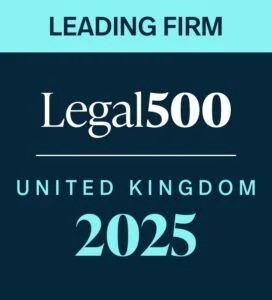UK Freeports offer a range of incentives and streamlined processes to attract overseas businesses, stimulate investment, and foster innovation. In this newsletter, we explore the concept of UK Freeports, and their benefits for overseas businesses, and outline the typical approval process for qualifying investment.
What are Freeports?
Freeports, also known as free trade zones or special economic zones, are designated areas within a country where businesses can operate with reduced tax regulatory and customs burdens. Freeports provide a business-friendly environment by offering tax incentives, simplified customs procedures, streamlined planning processes, and access to enhanced infrastructure.
Where are UK Freeports located?
ENGLAND
East Midlands Airport: Located in Leicestershire, and focused on advanced manufacturing, logistics, and e-commerce.
Felixstowe and Harwich: Located in Suffolk and Essex respectively, with a focus on digital and renewable energy sectors.
Humber: Encompassing the ports of Grimsby, Immingham, and Goole in the Humber region, aiming to become a hub for clean energy, manufacturing, and agri-food.
Liverpool City Region: Including the Port of Liverpool and the surrounding area, with a focus on maritime, advanced manufacturing, and freight logistics.
Plymouth: Located in Devon, with an emphasis on marine technology and advanced engineering.
Solent: Incorporating the Port of Southampton, with a focus on maritime and advanced manufacturing sectors.
Thames: Covering the Thames Estuary region, including London Gateway and the Port of Tilbury, focusing on global trade, logistics, and advanced manufacturing.
Teesside: Encompassing the ports of Teesport and Hartlepool, aiming to become a hub for clean energy, manufacturing, and logistics.
WALES
Anglesey: Focussing on marine energy technology and low carbon energy.
Celtic: (Milford Haven and Port Talbot) Focussing on technologies to support a reduction in carbon emissions, such as floating offshore wind.
SCOTLAND
Inverness and Cromarty Firth
Firth of Forth
What are the key benefits of Freeports for overseas businesses?
- Trade Facilitation: Freeports provide streamlined customs procedures, reducing administrative burdens and facilitating faster movement of goods.
- Tariff and Tax Benefits: Freeports offer tax incentives, including exemptions or reductions in Customs Duties, Stamp Duty Land Tax, Employer National Insurance Contributions, Enhanced Capital Allowances, Business Rates, Value Added Tax (VAT), and certain other taxes on goods imported, processed, and re-exported within the freeport area.
- Innovation and Collaboration: Freeports foster a collaborative environment by bringing together businesses, universities, research institutions, and entrepreneurs. This ecosystem encourages knowledge sharing, research and development, and innovation-driven activities.
- Sector-Specific Opportunities: Different Freeports in the UK cater to specific sectors, creating tailored opportunities for overseas businesses. For example, Freeports with a focus on advanced manufacturing, clean energy, or digital technologies offer targeted benefits and access to specialised supply chains, making them attractive for businesses operating in these sectors.
What businesses are not permitted to participate?
Importantly there are a number of sectors that may be excluded from benefiting from Freeport tax incentives – for example, residential housing and leisure and hospitality. Any business wishing to locate in a Freeport will be assessed across a range of strict qualifying criteria.
What is the qualifying period for Stamp Duty Land Tax (SDLT) relief?
SDLT Relief can be claimed from the date a Freeport tax site is designated until on or before 30 September 2026. The last date for submission of a valid claim is 14 October 2027. There is a control period of 3 years after the date of the purchase; during which period, the land or buildings must be used in a qualifying way. If this doesn’t happen, the relief is withdrawn, and a further SDLT return must be made. To claim the relief, a land transaction return must be submitted within 14 days of the transaction. Further details are available here.
What is the qualification for Employer National Insurance Contributions relief?
Relief on employer National Insurance contributions will be available for all new employees from April 2022 until April 2026, for the full 36-month period. This relief can be claimed for all new employees, on up to £25,000 per year, for 36 months from the start of their employment for the period that they meet the qualifying conditions. Full details are available here.
What is a typical Freeport investment approval process?
The investment approval process typically involves four key phases:
Phase 1: A quarterly review between the landowners and the Freeport Governing Board in which a list of potential tenants for the Tax Sites is presented.
Phase 2: Starting at the point where the landowner is in the process of agreeing Heads of Terms with the potential tenant for the relevant Tax Site.
Phase 3: The point that commercial terms are being finalised between the landowner and the tenant. The landowner will then be obligated to complete a second implementation checklist.
Phase 4: This final phase ensures that the Freeport Governing Board is updated biannually with evidence that the tenant is continuing to abide by the Investment Policy criteria.
How 3CS can help
We can assist with a full range of commercial property legal matters. We have recently successfully negotiated and completed a complex Freeport Lease on behalf of an international logistics company and have relevant expertise in this specialist area. For help and further information, please get in touch with your usual 3CS contact.
















